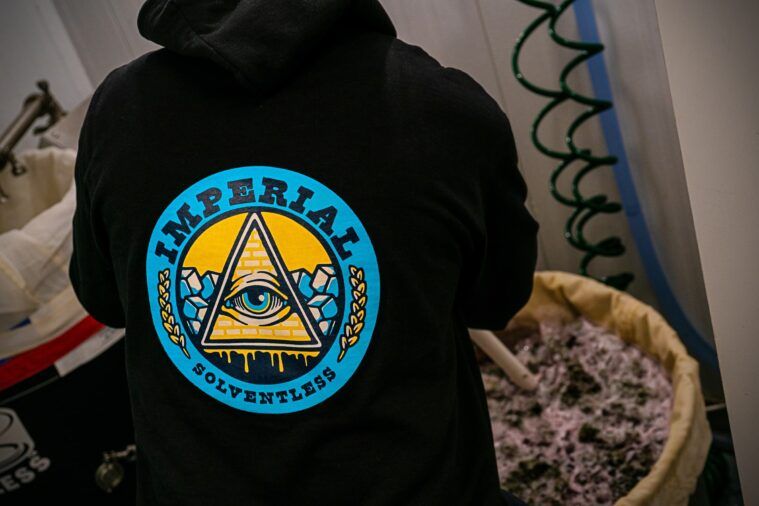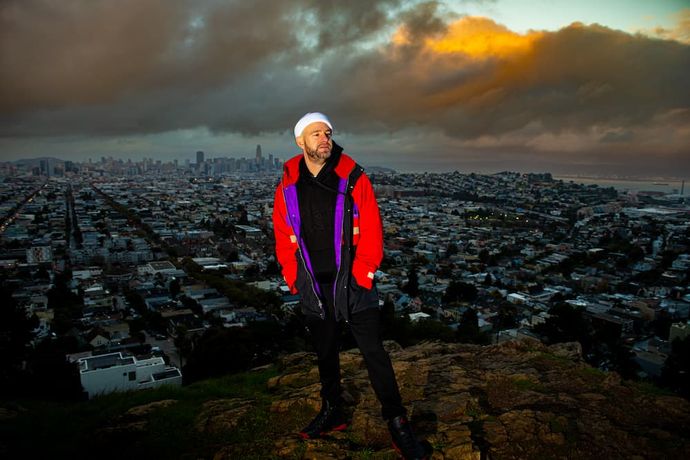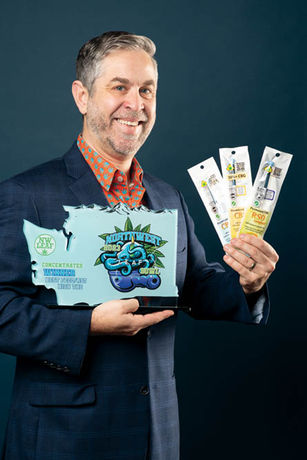In between hand-washing harvests, we connected with David Cox, owner of Imperial Solventless, to chat about how they got started, the pivot from BHO to solventless, and how he selects material for top-tier rosin production.
Tell us a little about how Imperial Solventless got its start.
I had started growing and processing hash in 2006, eight years before Imperial got its start. We were always going to pursue ice water hash. The original plan was to build out the solventless phase after we got the BHO going. Then, last minute, we saw that the market was headed toward solventless and we had a pretty major pivot. All of that was just fueled by our passion for great hash – which ended up working out great for us.
What do you feel is the most important when you’re making rosin and have some control over the texture and taste?
We’re all about the flavor! The greasy, wet rosin is really attractive. I think that’s what the market likes and that texture is very visually appealing. A good example is the Chocolate Thai Pie from Noble Farms. It’s Chocolate Thai x Grape Pie bred by Cannarado. Big grape flavor with an incredible effect. That one hits on all fronts.

I personally love that consistency. As a hash maker, I’m sure you’re pretty specific when it comes to quality control. What gear are you using to dab these days?
I’m old school. I have a nice rig, but I don’t use a thermometer most of the time. I do the cold start tech where I throw the rosin in, put my cap on, and just gently heat it. It’s usually between 60 and 80 seconds at most, depending on how big of a dab it is and whatnot. I’m mostly going low-temp to focus on flavor.
Tell us how you go about selecting material.
You know, we are all about quality, first and foremost. Still, it’s got to yield a certain amount to be worth it. So we might do a test wash if we aren’t sure. But, we do process a lot of low-yield stuff. I’d say between the one and three percent range is where most of our material lands, and that’s worth it to us. Even with the higher yielders, if the resin quality isn’t what we are looking for, we’ll move on.
Your team is Eugene-based, right? Do you mostly work with farms in that area?
We are! Some of our best supporters are in Eugene. In the beginning, I was a little nervous working with folks so close to home, because this is right in our backyard. Now we’re a lot more confident with our process and we’ve built great relationships with quality producers. Being in Eugene gives us access to the whole state, so most importantly we just want to work with the folks who are doing the best work. Quality in, quality out.










